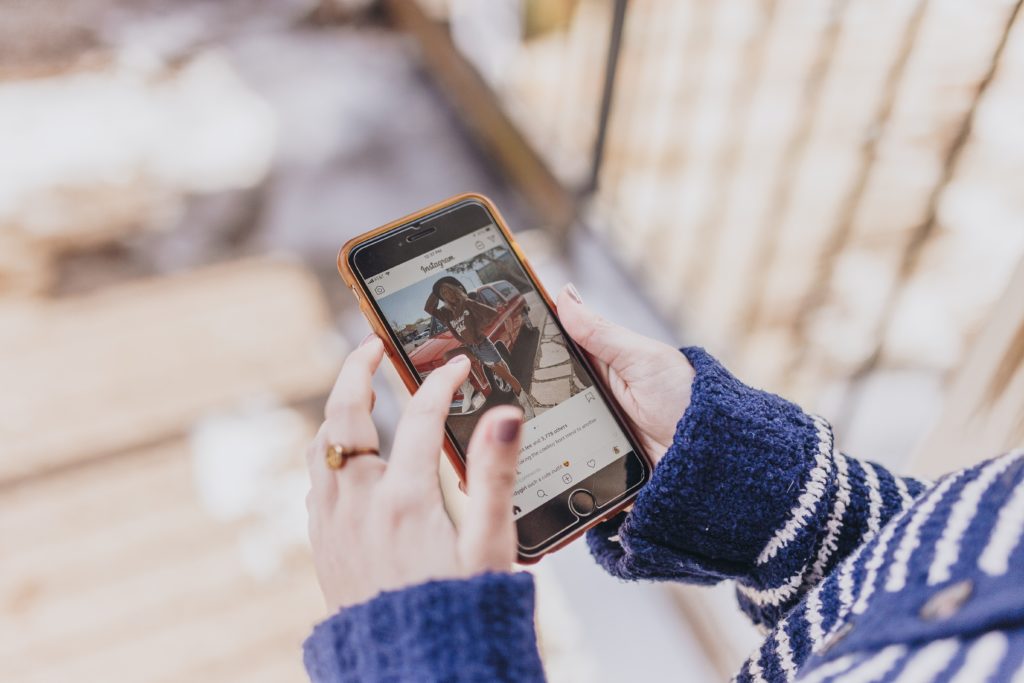Myth Busted: Is my phone listening to what I say?

You’ve just had a discussion with your friend about the latest pair of Adidas shoes you are eyeing. The next thing you know is spotting an advertisement on your Facebook feed for the shoes you were talking about. For many of us, this scenario has happened several times with different products. What exactly is going on? Are our phones eavesdropping on our private conversations? If not, could it be that our mobile activity is being tracked by major brands for better advertisement targeting purposes?
If you have the feeling that your conversations are being recorded by your phone, you are not alone. A recent study showed that 43% of American smartphone owners hold this belief as well! Unfortunately for conspiracy theorists, this is unlikely the case.
Our digital footprints are more valuable than our private conversations
While it technically is possible for huge companies like Facebook to collect audio files of our conversations, transcribe and analyse each of them before finally targeting ads individually to each of us, it is simply not productive for them to do so. Perhaps in the future, machine learning and AI technology will be sophisticated enough to do this efficiently. For now, however, such an undertaking would drain time and monetary resources rapidly. Therefore, companies who engage in such efforts will likely go bust in no time.
Instead, companies do the next best thing – they ‘follow’ our digital footprints. In other words, the Facebooks and Amazons of the world track our mobile activity in these ways: they analyse what we like, share and search for, identify the content we spend more time on, notifications we click on (a strong indicator of our interests) and scrutinise other online behaviour patterns that they deem valuable.

This may explain why you constantly feel that your phone is recording your conversations! In the earlier scenario, your interest in the Adidas shoes may have been ‘picked up’ not through your phone microphone but is a result of Facebook gleaning information from your complex digital footprint!
How should you protect your privacy from prying eyes?
Before you decide to give up on smartphones for good and make the giant leap to the old Nokia brick in protest of companies scrutinising your online behaviour, consider these ways to protect yourself:
1. Be careful with the apps you download
Research shows that an estimated 70% of Android apps collect your personal data and sell it to companies! If you are concerned about your privacy, you can, for starters, stick to downloading apps strictly from your device’s official application store. Third-party apps could be malicious and may collect your information for nefarious activities. Moreover, you can also limit the amount of data your apps are collecting by giving limited permissions to access the minimum amount of information enough for the apps to perform their intended functions.
2. Accepting cookies

Cookies are data pieces that are used to remember things about the websites that you use. While many cookies are harmless, some companies use their website cookies to track your behaviour and collect your information from websites they did not originate from! Choose wisely which websites you allow to give you a cookie. You can set your browser privacy settings to ask for your permission before accepting a cookie from a particular website.
3. Update your Antivirus Software
Keep your antivirus software on your smart devices constantly updated. This helps to ensure that your antivirus has the capacity to fight the latest spyware. This will go a long way in deterring viruses that stalk your online activity and infringe on your privacy by mining your data.
4. Optimize your passwords

For added security against any data breach, you should use strong, complex passwords that vary across the sites and apps you use. However, the disadvantage of having different and complex passwords is that you might find it difficult to remember these passwords. Here is where a password manager app can come in handy.
All in all, while we can be (almost) sure that brands are not hacking the microphones in our phones to record our conversations for their marketing purposes, they have been listening to us in a very different way. Arguably, tracking our mobile activity and mining our digital footprint reveals a lot more to these companies than hacking our microphones ever could. In essence, our privacy is our responsibility, so remember to take proactive measures to protect yourself in this digital age!
Tools Designed for Healthier Eyes
Explore our specifically designed products and services backed by eye health professionals to help keep your children safe online and their eyes healthy.
